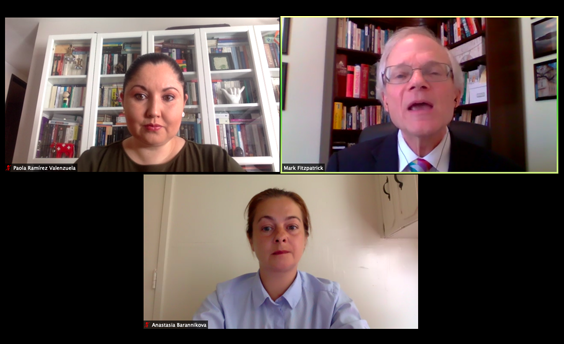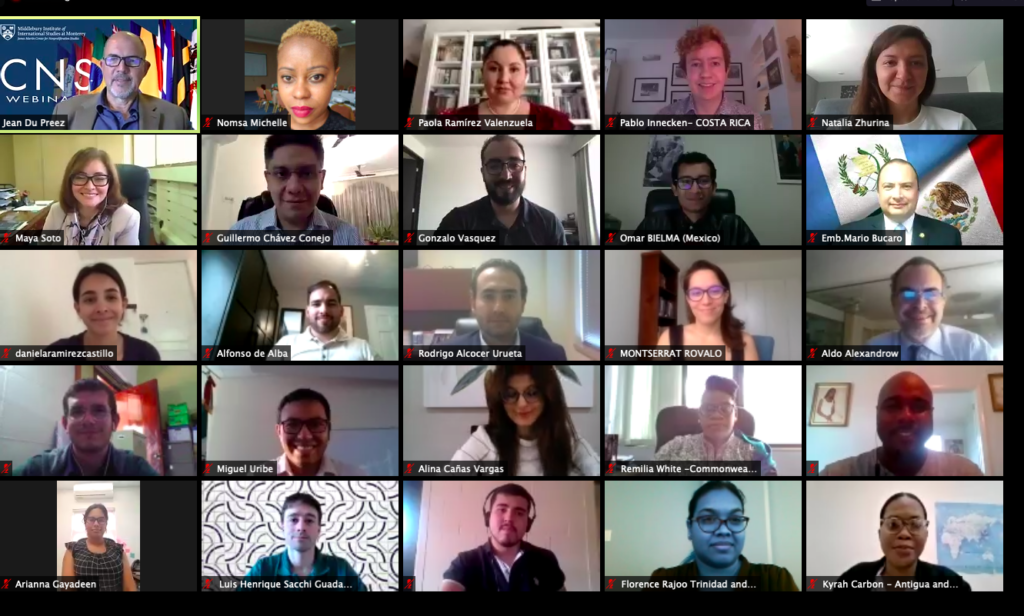July 17, 2020
Jean du Preez and Nomsa Ndongwe
Online Summer School for Latin American and Caribbean Diplomats
Fifty-three years after the establishment of the first nuclear-weapon-free zone—via the Treaty of Tlatelolco (Latin America and the Caribbean)—the James Martin Center for Nonproliferation Studies in conjunction with the Mexican Foreign Ministry, the Agency for the Prohibition of Nuclear Weapons in Latin America and the Caribbean (OPANAL), and the Instituto Matias Romero (Diplomatic Academy in Mexico City) hosted a two-week long online Nonproliferation and Disarmament Summer School for Latin American and Caribbean Diplomats.
With the focus on junior to mid-career diplomats from the region, the 2020 Summer School brought together more than 70 participants from more than 25 Latin American and Caribbean countries and OPANAL, and close to 30 expert speakers, including senior diplomats and heads of international organizations, a hibakusha (atomic bomb survivor), two Nobel laureates, and many world-renowned experts in nuclear weapons and associated materials, nuclear diplomacy, and international law.
Started in 2013, the annual Summer School typically focuses on the history, challenges, and new opportunities facing the nuclear nonproliferation and disarmament regime. The Summer School has traditional been taught on the premises of the Mexican Foreign Ministry in Mexico City, bringing together on average about 30 diplomats from Latin American and Caribbean countries. However, in view of the COVID-19 pandemic and associated travel and meeting restrictions, the 2020 Summer School was held in a fully online format from July 6–17, 2020 using Zoom and a unique course platform developed by the Instituto Matias Romero. As opposed to previous years, the online format allows for a much larger group of participants and experts from around the world.
Keynote Speaker
- Ambassador Gustavo Zlauvinen (Argentina)
President-elect of the 10th NPT Review Conference
Opening Session Speakers
- Ms. Martha Delgado Peralta
Undersecretary for Multilateral Affairs and Human Rights in the Mexican Secretariat of Foreign Affairs - Mr. Alejandro Gonzalez
Director General of the Diplomatic Academy - Ambassador Flavio Roberto Bonzanini
Secretary General of OPANAL - United Nations High Representative for Disarmament Izumi Nakamitsu
- IAEA Director-General Rafael Grossi
- CNS founder and Director, Dr. William Potter
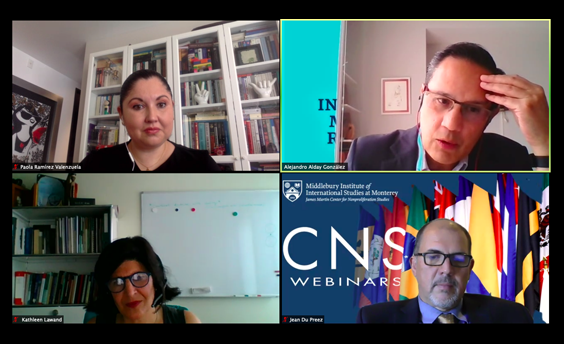
Topics and Highlights
Topics covered during the first week of the Summer School covered the nuclear fuel cycle, nuclear weapons technologies (by Nobel prize winning CNS scientist-in-residence, Dr. Ferenc Dalnoki-Veress), international control of nuclear materials, the NPT, the role of the IAEA and international safeguards, the Brazilian-Argentine Agency for Accounting and Control of Nuclear Materials, and nuclear-weapon-free zones.
Highlights included a heart-rending and galvanizing testimony from a survivor of the atomic bombing of Nagasaki, Ms. Masako Wada, and a lively interactive debate on challenges and priorities for the Tenth NPT Review Conference featuring, inter alia, the president-elect of the NPT Review Conference. Another stimulating session featured a debate on motivations for nuclear-weapon acquisition, and international nonproliferation and disarmament law with Middlebury Institute Professor Philipp Bleek, the International Committee of the Red Cross’ Kathleen Lawand, and Mr. Alejandro Gonzalez, director general of the Matias Romero Institute.
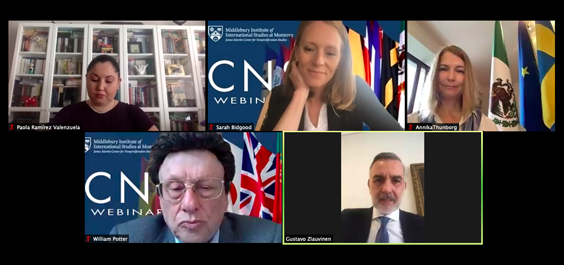
The second week of the Summer School featured lectures and discussions on Iran and the future of the JCPOA; North Korea’s nuclear program and prospects for the Korean Peninsula Denuclearization; New Tools and Approaches for Nonproliferation and Disarmament Verification and Monitoring; the CTBT and its verification regime; status and prospects of nuclear weapons arms control, and nuclear security and prevention of nuclear terrorism.
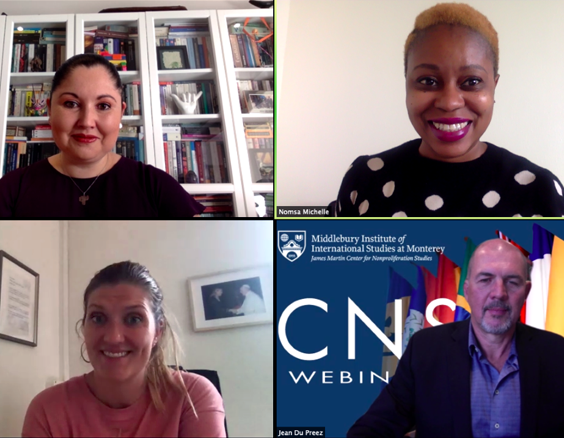
Highlights of the week included a discussion on the Treaty on the Prohibition of Nuclear Weapons featuring, inter alia, Beatrice Fihn, executive director of the Nobel Laureate Organization the International Campaign to Abolish Nuclear Weapons, and two women who had been a part of the negotiation process, including Nomsa Nodngwe; and a panel discussion the role of women in changing the discourse in nuclear nonproliferation, disarmament, peaceful uses of nuclear energy, and nuclear security, featuring Ambassador Annika Thunborg of Sweden in Mexico, Ms. Paola Ramirez Valenzuela, Deputy Director General for Disarmament, Nonproliferation and Arms Control, Secretariat for Foreign Affairs of Mexico, and CNS Visiting Fellow, Dr. Rabia Said.
During the last two days of the school, attendees had an opportunity to break into smaller groups and interrogate what in their view were the most severe threats to the nuclear nonproliferation and disarmament regime and ways to stem them. Group presentations featured suggestions such as: grassroots-level cooperation, hosting monthly remote get togethers with a mélange of senior and junior diplomats and members of society to discuss these issues.
The Summer School is organized with financial support from the Carnegie Corporation of New York and the MacArthur Foundation.
